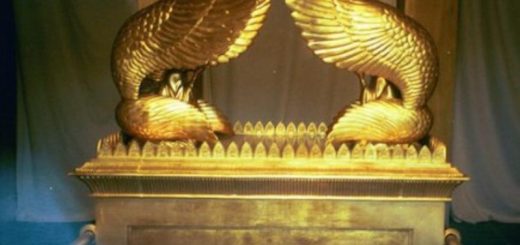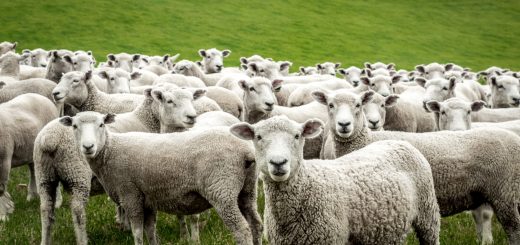Older and Better

Last week we spoke about the steps we can take to avoid becoming prisoners of our bodies as we grow older. This week I’d like to examine the bright side of the inevitable physical decline that goes with age.
I’m still young enough to remember looking at older people — i.e., anyone over thirty — with a certain amount of pity, and imagining that they must be envious of my relative youth. Yet as I’ve reached each one of those milestones that I could only think about with dread when I was twenty, I’ve found myself reflecting on the satisfactions of advancing years rather than lamenting my lost youth.
Youth, it must be granted, has its particular charm: the sense of boundless potential. “The charm and insolence of youth is that it is everything in potentiality and nothing in actuality,” wrote the Spanish philosopher Ortega y Gasset. It is characteristic of young people to hesitate in the face of the seemingly infinite possibilities before them; they know that walking through any door will foreclose others and signal the end of their infinite potential.
Far more satisfying than preserving that sense of infinite possibility, however, is having made some choices and walked through one of those beckoning doors. Having actually done something, built a home with a life partner, and raised children is ultimately a lot more satisfying than fantasizing about whom one will marry or what one will do when he grows up.
My experience is that people generally improve with age — they become deeper, more serious, and nicer. On those occasions when I meet someone whom I did not particularly care for in high school, I’m usually struck by how little connection there is between the person I remember and the person he is today. (My own greater maturity and ability to judge people favorably no doubt has something to do with that as well.)
On a recent trip to the States, I had a chance to spend three hours with a younger cousin whom I had not seen in almost thirty years. My primary memories of him were of an unhappy child constantly fighting with his parents about schoolwork, who basically left home shortly after high school. Somewhere in the interim, he confronted and overcame his various childhood demons, including undiagnosed dyslexia. Today he is happily married, has raised successful, happy children, and is the kind of person with whom I would have been perfectly happy spending three hours talking even if he were not my cousin.
To be sure, there is nothing automatic about becoming a better person with age, and no escape from the need to work on oneself. But there is a tendency towards improvement with age built into Creation, and it is connected to our physical decline.
A few years back, Senator John Glenn, the first American to orbit the earth, reprised his original journey into space, only this time he was 77 years old. Glenn’s second journey into space was a big media event, with everybody marveling that a man of his age could still possess the physical strength to endure the gravitational pull of a launch into space.
The secular youth culture paid homage to Senator Glenn for having succeeded in maintaining his youthful vigor. That culture worships youth, and in its eyes, an older person is entitled to respect to the extent that he has succeeded in retaining his former physical powers.
My friend Rabbi Yitzchok Adlerstein of Los Angeles pointed out, in an essay for the journal of the American Association of Retired Persons, that this attitude is diametrically opposed to the respect that the Torah commands us to pay to older people. In the Torah view, an older person is entitled to respect precisely because of his declining physical powers. The Maharal writes in Be’er HaGolah (Be’er 6, p. 107), “an older person, on account of the weakening of his body, is deserving of honor, ‘In front of the elderly rise. . .’ (VaYikra 19:32). The reason, the Maharal explains, is that when the body loses its power, the neshama remains and plays an increasingly dominant role.
While an older person who cannot move freely is imprisoned by his body in one sense, younger people are imprisoned by their physicality in a different way. The younger one is, the more dominant the physical side of his being tends to be. The waning of our physical powers, then, signals the increasing dominance of our spiritual side. Freed from the tyranny of our physical drives, we are better able to crown our Divine seichel as ruler over our actions.
Rav Shach (as quoted by Rabbi Shlomo Lorincz) once remarked that Klal Yisrael will never be lead by a young person. That is not because there are no young talmidei chachamim. There are Talmudic prodigies in their ’20s and ’30s who have amassed incredible stores of Torah knowledge and can more than hold their own in Talmudic disputation with those far older than them.
Wisdom cannot be rushed; there are no prodigies in wisdom. Wisdom, like fine wine, requires aging. That is partly a function of experience. But is also a function of the declining hold of our physicality over us as we age.
Only one who has lifted himself above all negios (personal interests) can trust in his own decisions, much less lead Klal Yisrael. As long as our physical drives are in full force, and threaten to enslave us, it is almost impossible to rise above those negios. Age gives us an edge in the battle with our yetzer hara.
If we can keep moving easily in our later years, and are not absorbed by the breakdown of our bodies, we should be grateful. But we should also remember that the processes that sometimes make these things a challenge offer us the possibility of wisdom not accessible to our younger selves.
Appeared in Mishpacha magazine today.




Old age typically combines two separate elements: experience and the weakening of the body. Those two elements can combine to make a person wiser. The question is at what proportion.
If the weakening of the body played a great role, we’d expect people whose bodies are weak to be wiser. Are the physically handicapped more likely to become great Rabbis than those whose bodies function well?
ORI:
It depends on what you “bring to the table.”
As the Talmud states: “Am-HaaRatzIm get more stupid and silly as they age, while Talmidei ChaChoMim get wiser as they age.”
If you’ve spent your entire life running from one pizza shop to the next, you won’t have much to do when your body loses its ability to run around.
But, if you’ve spent your life filling your mind with volume upon vilume of Talmud, TANAC”H, Sifrei Mussar, Sifrei Kabballah, you will end up with a mind that contains a wealth of Torah that can be further refined and extended for the rest of your life, regardless of your physical infirmities.
The Maharal writes in Be’er HaGolah (Be’er 6, p. 107), “an older person, on account of the weakening of his body, is deserving of honor, ‘In front of the elderly rise. . .’ (VaYikra 19:32). The reason, the Maharal explains, is that when the body loses its power, the neshama remains and plays an increasingly dominant role.
_______________________________________
The Rishonim make basically the same point on the mishnah at the very end of Kinim.
Hillel, I fully agree with you. It seems that the older we get, the more we become the person we attempt to be – for good or ill, depending on our choices.
BTW, where does the Talmud say that?
I misunderstood Rabbi Jonathan Rosenblum. He e-mailed me the correction, that it’s not the weakness of the body as much as the weakening of the power of one’s physical desires (or the strengthening of one’s will power to resist them).
Plato makes more or less the same points in Book 1 of the Republic. Socrates visits Cephalus, and elderly man. Socrates asks Cephalus how old age is:
“There is nothing which for my part I like better, Cephalus, than conversing with aged men; for I regard them as travellers who have gone a journey which I too may have to go, and of whom I ought to enquire, whether the way is smooth and easy, or rugged and difficult.”
Cephalus replies that it is good. He notes that (1) he is freed of the passions of youth (from a “mad and furious master”), and (2) a person with a good disposition is not burdened by old age:
“I will tell you, Socrates, he said, what my own feeling is. . . . How well I remember the aged poet Sophocles, when in answer to the question, How does love suit with age, Sophocles, — are you still the man you were? Peace, he replied; most gladly have I escaped the thing of which you speak; I feel as if I had escaped from a mad and furious master. His words have often occurred to my mind since, and they seem as good to me now as at the time when he uttered them. For certainly old age has a great sense of calm and freedom; when the passions relax their hold, then, as Sophocles says, we are freed from the grasp not of one mad master only, but of many. The truth is, Socrates, that these regrets, and also the complaints about relations, are to be attributed to the same cause, which is not old age, but men’s characters and tempers; for he who is of a calm and happy nature will hardly feel the pressure of age, but to him who is of an opposite disposition youth and age are equally a burden.”
Avigdor,
As a person who appreciates the classics, have you read any of Leo Strauss? He attacks the classic vs. modern problem with a very subterraneanly Jewish point of view, although not frum. He was in the Lehrhaus in Germany with Rosenzweig and Buber and you see the Jewish influence in his talmid, Dr. Leon Kass. See his volume “Persecution and the Art of Writing”, which includes an essay on the Moreh Nevuchim and one on the Kuzari. He revised his position on the Rambam later in life partially, I think, as a result of criticism from Rav. Prof. Isidore Twersky z”l.
Well, there’s older and then there’s OLDER. I sure would like to hear from an elderly person (mid 80s+ ) who is happy to be alive. Don’t mean to be cynical, but my mom has Alzheimers (ever notice no one says “refuah shlema” to a person w/dementia) and my mother-in-law, who is a Holocaust and cancer survivor, battles diabetes, kidney disfunction, high blood pressure, arthritis, etc etc. Sure, I get the mitzva for caring for them but their life is no picnic, and they both question the value of living so long. Yeah, they love the grandchildren/great-grandchildren and it gives them nachas, but only for about 15 min. before they tire of it. I’m beginning to think my father a’h had it best when he died in the prime of his life from cancer at 60. I’m not bitter, just very weary. And I feel as sorry for them as they do for themselves.